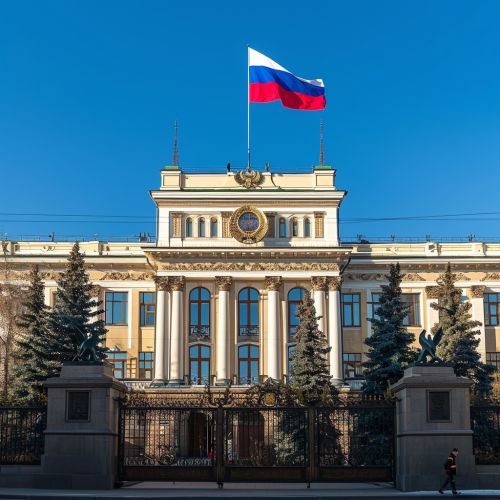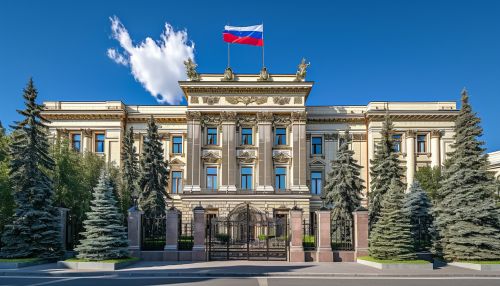Central Bank of the Russian Federation
Overview
The Central Bank of the Russian Federation, also known as the Bank of Russia, is the central monetary authority in the Russian Federation. Its primary function is to maintain the stability of the national currency, the Russian Ruble, through monetary policy actions. The Bank of Russia is responsible for the issuance of currency, the regulation and supervision of the banking system, and the maintenance of the country's financial stability.


History
The Central Bank of the Russian Federation was established in July 1990, succeeding the State Bank of the USSR. The Bank of Russia is the successor to the Soviet Union's State Bank, which was dissolved following the dissolution of the USSR in 1991. The current structure and functions of the Bank of Russia are defined by the Federal Law "On the Central Bank of the Russian Federation (Bank of Russia)".
Structure
The Bank of Russia is governed by a Board of Directors, which is responsible for making key decisions about the bank's policies and operations. The Board of Directors is headed by the Governor of the Bank of Russia, who is appointed by the President of Russia for a term of five years. The Bank of Russia also has several deputy governors and a number of departments responsible for various aspects of the bank's operations.
Functions
The primary function of the Bank of Russia is to maintain the stability of the Russian Ruble and ensure its free convertibility. Other key functions include:
- Formulating and implementing monetary policy.
- Regulating and supervising the banking system.
- Maintaining the stability of the financial system.
- Managing the country's foreign exchange reserves.
- Issuing banknotes and coins.
Monetary Policy
The Bank of Russia implements monetary policy primarily through open market operations, the setting of interest rates, and the management of the country's foreign exchange reserves. The Bank of Russia's monetary policy is aimed at maintaining price stability and preventing inflation.
Banking Supervision
The Bank of Russia is responsible for the regulation and supervision of the banking sector in Russia. This includes the licensing of banks, the monitoring of their activities, and the enforcement of banking regulations.
Financial Stability
The Bank of Russia plays a crucial role in maintaining the stability of the country's financial system. This involves monitoring and addressing systemic risks, ensuring the smooth functioning of payment systems, and acting as a lender of last resort in times of financial crisis.
Currency Issuance
The Bank of Russia has the exclusive right to issue banknotes and coins in the Russian Federation. The design and denominations of the currency are determined by the Bank of Russia.
